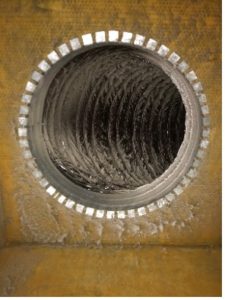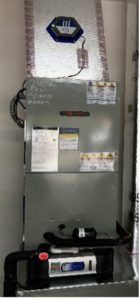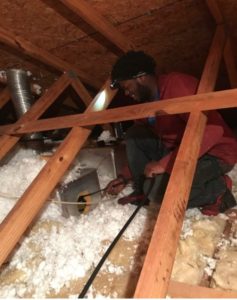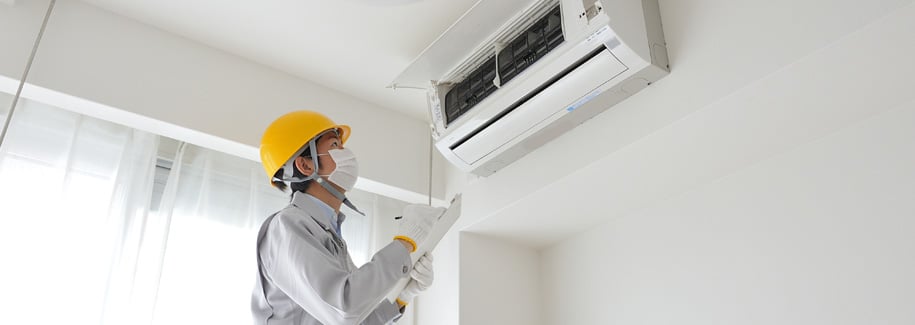What Causes Dirty Ducts?
At Gator Air and Energy, we not only clean dirty ducts but we look for the root cause of what is causing unhealthy air in the customer’s home. Ducts mainly get dirty for two reasons:Â
- Poor quality or filter location in relation to airflow.
- The AC unit growing contaminants due to operating conditions. For example, fungal growth that builds in the cooling coil and blower wheel during the summer dries out in the heating and off cycles of the equipment.
Oftentimes, we see both conditions as well as condition 1 contributing to condition 2.
Duct Cleaning Done Right
Let us examine poorly placed filters or improperly installed filters with an example. Often, the house we visit is 30 years old with an air handling unit and filter in the garage that is of poor quality or the wrong size for the opening. The return air travels from an unfiltered grille in the house for 25 feet before “seeing†a filer in the unit. The owner of the house has 2 dogs that shed hair. In this house, we take a picture of the duct full of dog hair and the homeowner knows right away they are a good candidate for return duct cleaning at the very least.Â
Next, we cut an opening in the supply air duct above the fan or cooling coil and take a picture of fungal growth in the supply air ducts. In this instance, the growth is likely being fed by the dirty duct conditions and the cold, dark, and humid conditions that all HVAC equipment in Florida operates in during summer without the addition of UV lighting.
For this home, we recommend cleaning (or replacing) the return air duct seeing unfiltered air in addition to supply air cleaning. We’d also recommend painting the first three feet of the duct with microbial paint and adding, at a minimum, a UV light to kill fungal growth or, even better, a combination of UV light and an air purifier to aid in dust collection and air purification. We could also offer a better filtration system, such as a 5-inch filter or an electronic air cleaner in place of a filter to remove 99.8% of all contaminants for an exceptional system that delivers the cleanest and purest air attainable for the customer.
In addition to duct cleaning, we pull and clean (or replace) the grilles and seal the boots to the ceiling that increase hygiene and typically reduce duct-leakage rates by 10 cfm per grille on average.
While $1,500 to $2300 for an average job may seem like a high price to pay for some customers, we believe in doing the job right the first time and fixing the “root cause†of an unhealthy environment, saving you money in the long run.
Duct Cleaning With Gator Air & Energy
Here is a picture of one of our recent jobs, where we added a Trane Clean Effects electronic air cleaner and a dust-free air purifier for long-term HVAC hygiene for a person who suffered from allergies. We also thoroughly cleaned the ducts that had collected over 30 years of dust.
Here, you can see the original dirty return duct. We’ve actually seen much worse as this customer didn’t have a pet to build up dog hair.
For this home, we installed the Trane Clean Effects electronic air cleaner at the bottom of the unit and a Dust Free Air purifier in the supply duct.
Here, a thorough cleaning involved going into the attic to clean the vertical run of the supply duct.
Breathe Easier by Trusting Our Experts
At Gator Air and Energy, our trusted team prioritizes the health of your home and the quality of our work. For information on indoor air quality, we recommend customers research air purifiers and UV lights before we prepare an estimate or air quality analysis. Give us a call for professional duct cleaning at (352) 415-9559!









